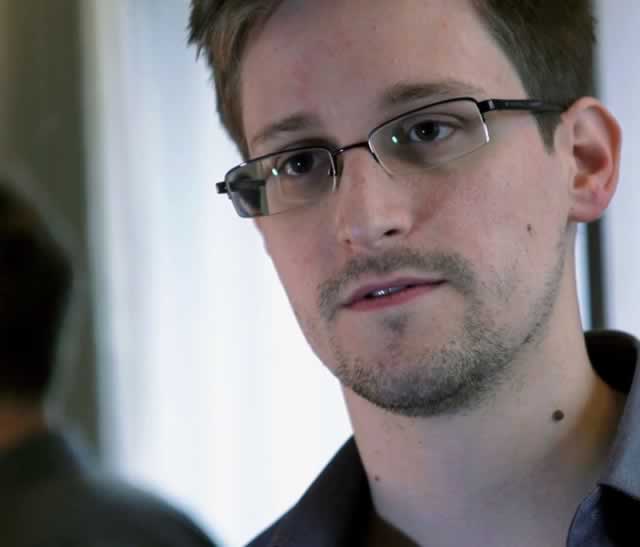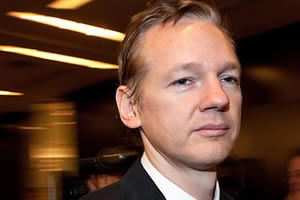NSA spying: Every country does that, stupid!

EVER wondered why whistle-blowers such as WikiLeaks’ Julian Assange and more recently former intelligence analyst with the United States’ National Security Agency have become household names that are also number one enemies with Western governments, the United States government in particular?
While the US has gone to great lengths to silence them and also vilify their actions, in retrospect, it is interesting to note how their double standards and hypocrisy played out regarding Zimbabwe’s Facebook character Baba Jukwa, who has been touted by some as a whistle-blower.
How different are Edward Snowden’s and Baba Jukwa’s actions? Why should the latter’s actions against the Zanu-PF leadership be celebrated and cheered on while Snowden and Assange become almost stateless because of the revelations they made about the United States’ network of espionage activities?
While Baba Jukwa was assuming celebrity status in most Western embassies and media houses, it has not been the same with Snowden and Assange.
In the run-up to the July 31 elections, Baba Jukwa’s Facebook posts were hyped to unbelievable levels. His purported leaks were celebrated by the Western media, because he was telling them what they wanted to hear and was also getting the latitude to whip up emotions so that there could be a possible insurrection against President Mugabe and Zanu-PF.
I remember one diplomat remarking that “this Baba Jukwa element” was making the elections very exciting.
It was lost to these people who were promoting Baba Jukwa to that celebrity status that the damage they say Snowden and Assange had caused in national security operations were the same as those Baba Jukwa was trying to cause on Zimbabwe.
To the West, it was quite acceptable that Zimbabwe should have a whistleblower singing the illegal regime change hymn.
The silence by Zanu-PF and the Government of Zimbabwe was invariably translated: either Baba Jukwa was telling the truth and/or Zanu-PF did not even have the technological know-how to track the mole who sounded like an insider turned dissident.
How so pathetic!
If Assange and Snowden are undesirable elements, why was the West so excitable about Baba Jukwa?
Why has the African (Zimbabwean) media also failed to expose these double standards?
We are made to believe that countries snoop against each other, but the degree as revealed in the NSA files stolen by Snowden is disturbing for any government.
No one has been spared in this data mining. If they spied on United Nations member states in New York, it means that this was an espionage exercise pitting the US against the international community.
As I write, Snowden’s endless revelations about how the US spied on other countries, friends and foes alike is a subject of major debate in most countries.
After WikiLeaks a few years ago, Snowden’s story should have turned the African media into sniffer dogs because both turned to contemporary and established media houses to make the kind of impact they knew they were going to make. Africa was also not spared.
So important is the media in this whole saga that in some cases certain interest groups have accused the Fourth Estate of working hand in glove with enemies of the state. The diplomatic tiffs caused by the revelations have far reaching consequences.
South America is very mad. Europe is outraged. As I write, the French, Germans and British are seized with the issue because it looks like there are more revelations than they thought.
British MP Julian Smith on Tuesday argued in the House of Commons that the Guardian newspaper should have been prosecuted over the NSA files. Said Smith, “In spite of the actions taken by the government to destroy the files held in the Guardian’s London office, these files are out there, highly vulnerable to terrorist infiltration, and not just that – these detailed files on GCHQ operations are now handed to an infinite number of extra eyes via American journalists and even bloggers. Each person multiplies the risk to this country.
“The Guardian focused on sending abroad revelations not about the American NSA or whistleblowing. They chose to distribute information about our own intelligence agents and GCHQ . . . To communicate, not just publish; any identifying information about GCHQ personnel is a terrorist offence. This is not press freedom – this is the Guardian’s devastating impact on national security.”
The journalist who published the revelations has since left the Guardian newspaper, while British premier David Cameron has publicly said that the revelations as published by the Guardian breached and hurt national security.
If a newspaper is forced to destroy the Snowden files and complies despite claims about freedom of the press, then you know that we are dealing with a behemoth – a story bigger than the few lines we read on a daily basis.
Now, imagine for a moment the international shrills if attempts had been made to trace the IP addresses used by Baba Jukwa and plugging them off.
Zimbabwe would have gone in the annals of history for curtailing freedom of expression on social media.
This would have given credence to calls for media reforms and the UN would have been forced to take action. All those rights groups would have descended on Zimbabwe. But as it were, they are conspicuous by their silence in the Snowden saga.
But, I still wonder why we haven’t seen the bigger picture. The story is not about some “irresponsible 29-year old” being so brave as to collect that much damaging data the NSA has mined over the years and taking it to Hong Kong and finally getting asylum in Russia.
It’s just part of the story, but not the real story.
We still have to hear about China and Russia since analysts believe that this whole data mining was a way for the US to globally position itself in the geo-political arena and still remain the top dog. Thus Snowden’s actions are “unforgivable” to them because he is instrumental in destroying the invincibility of the empire.
However, as the United State’ interests on the African continent continue to grow militarily and otherwise, questions arise: as an intelligence analyst, did Snowden ever come across any NSA activities on the African continent?
Despite its strategic position, why is Africa for now missing in these revelations – snooping on African leaders and citizens and not just the UN staff? Or is Africa being served for the grand finale?
Lessons learnt by Hildegarde: the Snowden saga just like WikiLeaks is a demonstration of how those who call the shots can dictate what and how the world should be governed.
They have heavily invested in information gathering, packaging, organisation, dissemination and analysis systems, and they can do anything, and before we realise it, the rug has been pulled from under our feet.
They will make you say and do things, without them issuing a single command. They built an information superhighway that now does the job for them. As ICTs permeate every aspect of our daily lives, we cannot help but marvel at how they make our lives (chores) easy.
We talk and share in real time, but at what cost?
No offence meant. We can leap frog technological advancements, but will remain consumers. They want us aboard for their benefit.
When I know more about an outsider than I do about myself I should start questioning why the equation does not balance. When we can interact on the information superhighway, but doing so amid a wall separating us (it’s there), it’s time to ask pertinent questions.
When the other side is able to see through and reposition or strategise, but I can’t do the same, again, I should ask questions.
Why can’t I see through the other side or why am I lagging behind?
Why can’t I dictate the rules of engagement on those platforms?
Why should it also not be a tit-for-tat scenario if nations have always spied on each other since time immemorial?
Simple: we have waited for them to do the research and design the technologies.
As I pointed out, we become big consumers who never question where that information we are creating is stored, and how it is being used. We give away fantastic ideas, but those with the means mine and beneficiate on them. Not just that. They patent those ideas they get from our endless tweets, Facebook walls. The list is endless.
For all I know, these are nothing but vehicles for collecting strategic intelligence information to allow individuals, organisations and nations to position themselves. Thus I shudder to think what sort of report card we will get on the NSA’s spying activities on African countries, Zimbabwe in particular.
But all is not lost I believe. We can use these cases analyses to be vigilant and proactive in ICT usage. This calls for local skills and knowledge to devise appropriate infrastructures in order to firewall the enemy.
Such defence mechanisms would take us to the next level – creating our own national information infrastructures and superhighways with our own characteristics – local content if you like. It takes capital and political will to achieve this, but it’s doable.










Comments